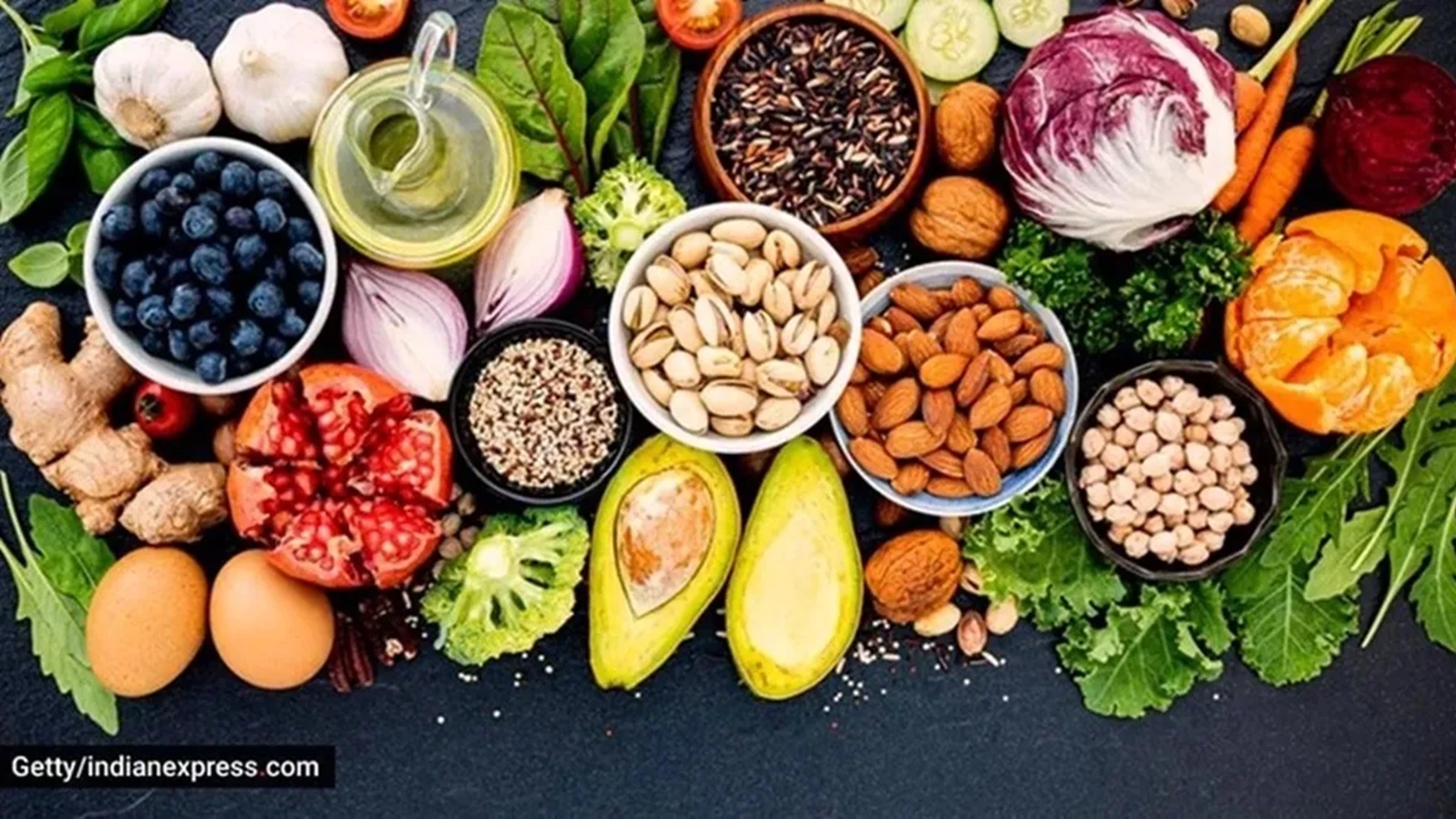Vitamins are essential to our health and well-being. Health experts often recommend getting these important nutrients from your diet rather than relying on supplements.
“Vitamins are a group of substances that cannot be synthesized by the body and must be supplied from external sources such as food,” explained clinical nutritionist Vedanti Dave. However, he added that “some vitamins, such as K and B, are synthesized by intestinal bacteria.”
Dave guided us through the health benefits of different vitamins and foods rich in them.
vitamin A
Vitamin A plays an important role in growth and development as well as optimal vision, especially in dim light. Deficiency can make the body more susceptible to infections and can cause nutritional blindness, increased infections, and spontaneous premature birth in women. Sources of vitamin A include eggs, spirulina (blue-green algae), carrots, colocasia, coriander leaves, and spinach.
vitamin B complex
Vitamin B1 (thiamine): Thiamin is essential for the coordination of neural movements through its role in nerve conduction and energy production. Known as the “vitamin of morale,” deficiency can cause mental depression, confusion, and muscle weakness. Pork, whole grains, and legumes are the richest sources.


Vitamin B2 (riboflavin): Riboflavin promotes antioxidant activity and cell repair. Deficiency can cause stomatitis, skin lesions, and decreased muscle response. Dairy products, eggs, and almonds are the best sources.
Vitamin B3 (niacin): Niacin helps prevent pellagra, which manifests as diarrhea, dermatitis, and dementia. Groundnuts and meat are rich sources of nutrients.
Vitamin B5 (pantothenic acid): This vitamin is essential for the production of hormones and cholesterol. Deficiency is rare but can affect the nervous system. Liver, kidney, egg yolk, and milk are good sources.
Vitamin B6 (pyridoxine): B6 enables the production of red blood cells and supports cognitive development. Deficiency can cause anemia, sleep problems, and irritability. The richest sources include meat, fish, and poultry.
Vitamin B7 (biotin): Biotin supports healthy skin, hair, and nails. Symptoms of deficiency include depression, hallucinations, and muscle pain. Egg yolks and soybeans are the best sources.
Vitamin B9 (folic acid): Folic acid is essential for DNA synthesis, especially during pregnancy, as it helps prevent neural tube defects in the developing baby. Deficiency can lead to weight loss, weakness, and loss of appetite. Beans, eggs, and leafy vegetables are rich in folic acid.
Vitamin B12 (cobalamin): B12 is important for nerve function and red blood cell formation. Deficiency can cause immature blood cells to enlarge. It is mainly found in animal foods and fermented foods.
 Sources of vitamin E include vegetable oils (rice bran oil), nuts, and legumes. (Source: Getty Images/Thinkstock)
Sources of vitamin E include vegetable oils (rice bran oil), nuts, and legumes. (Source: Getty Images/Thinkstock)
vitamin C
Vitamin C acts as an antioxidant, aids in iron absorption, and helps prevent cataracts. Deficiency can cause bleeding gums, brittle bones, and delayed wound healing. Amla is one of the richest sources of vitamin C.
vitamin D
A lack of vitamin D, which is essential for bone formation and maintenance, can cause bone softening (osteomalacia) in both children and adults. Sea fish, butter, and egg yolks are rich in this vitamin.
vitamin E
Vitamin E acts as a powerful antioxidant. Deficiency can lead to uncoordinated movements and decreased muscle strength. Best sources include vegetable oils (such as rice bran oil), nuts, and legumes.
vitamin K
Vitamin K plays an important role in blood clotting. Deficiency can increase the risk of bleeding. Dark green leafy vegetables and alfalfa sprouts are good sources of vitamin K.

